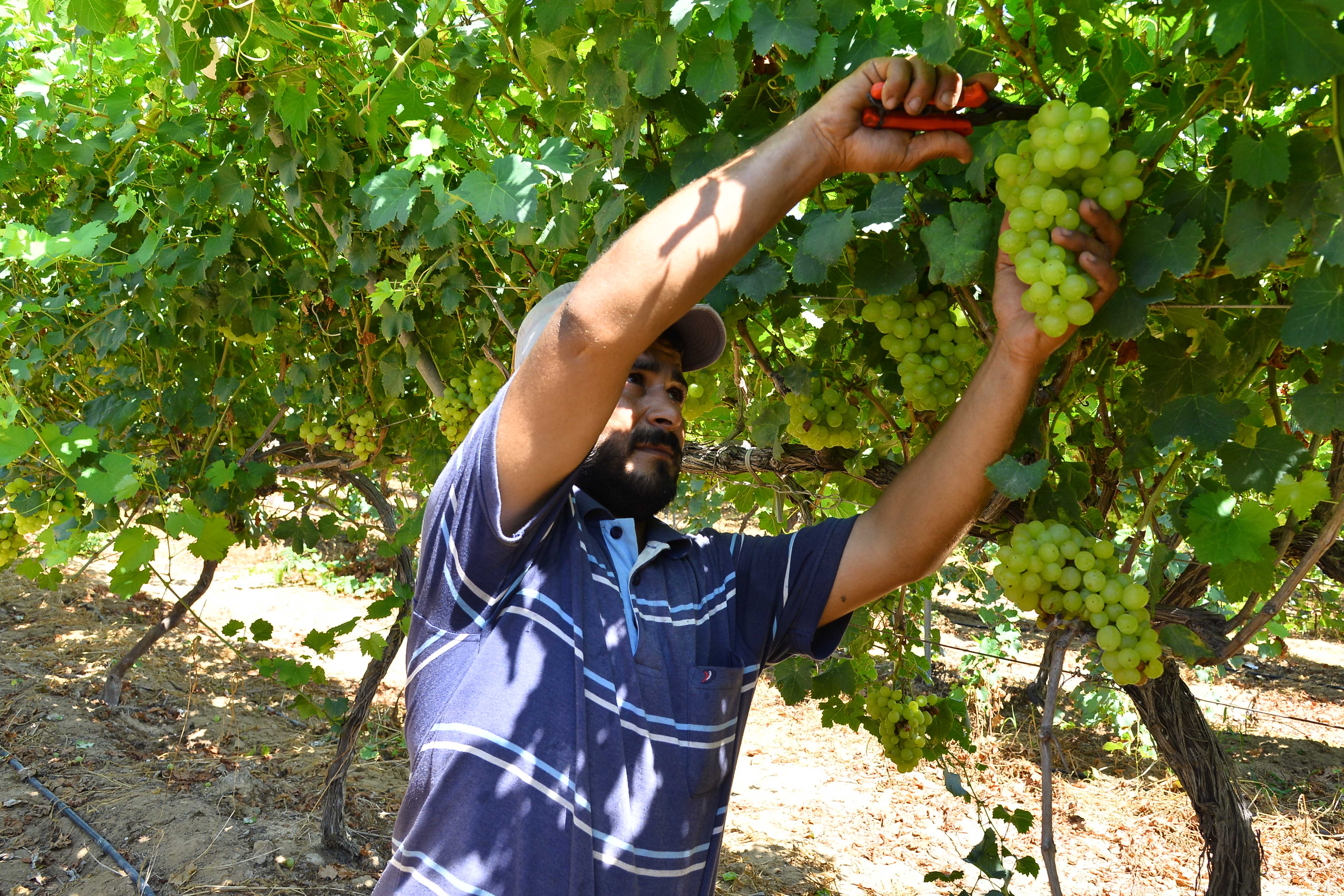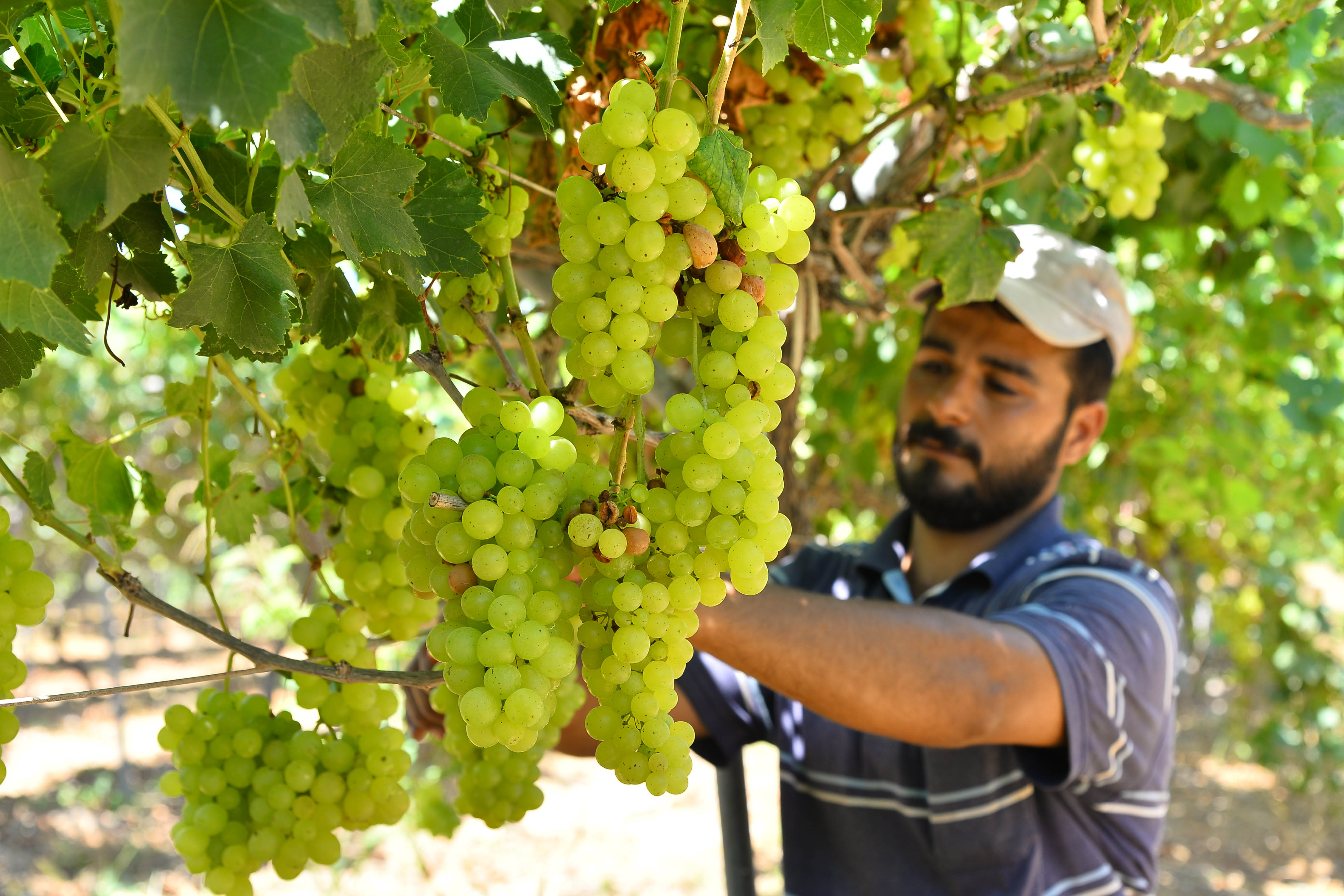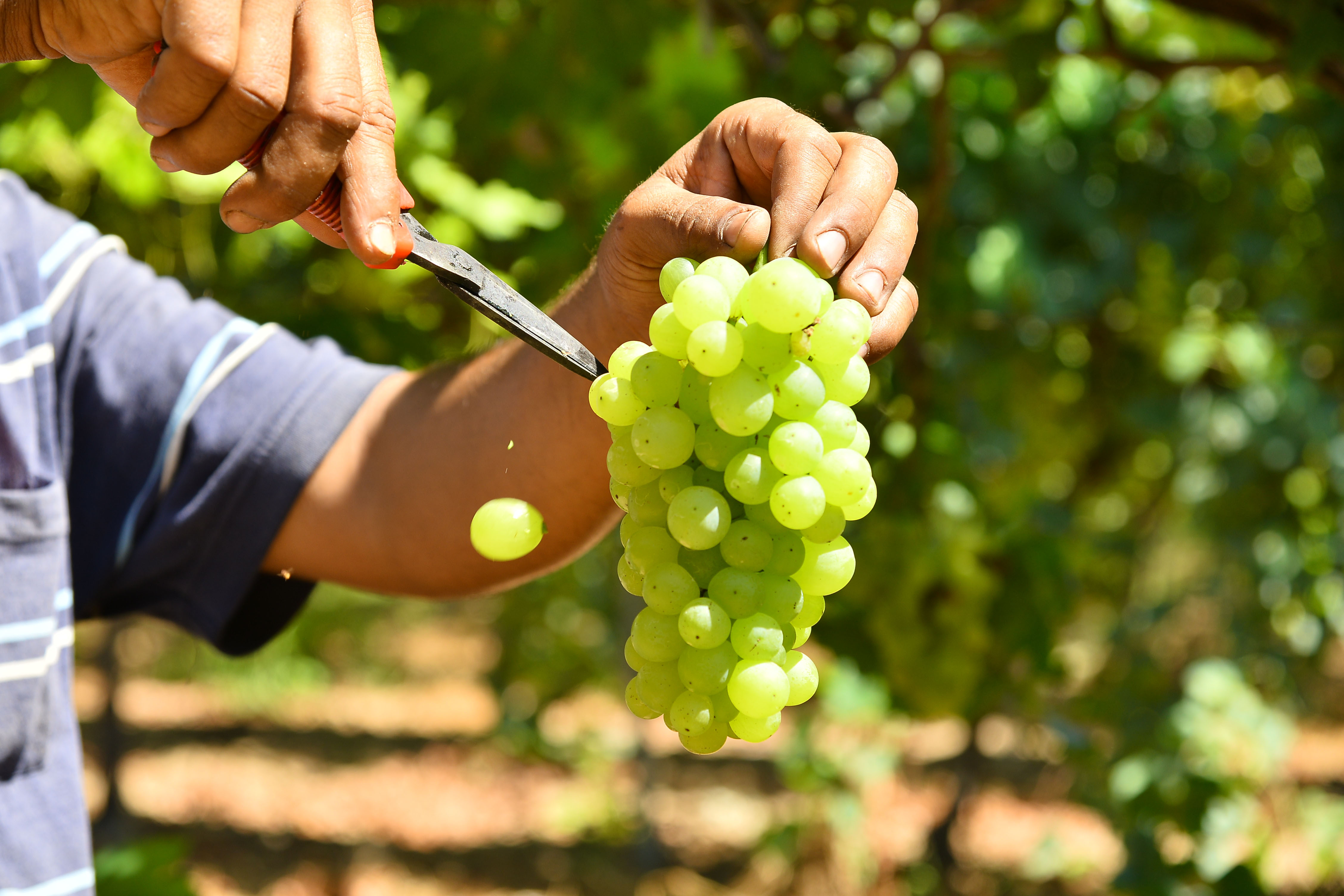
A Palestinian farmer harvests grapes in a field in Beit Lahia, Gaza Strip, July 4, 2019. (Str/Xinhua)
GAZA, July 4 (Xinhua) -- Yusuf Abu Selmi, 32, a farmer based in the Gaza City, was waiting the annual harvest of grapes to start and earn his profits through selling the delicious fruit, after several months of caring for his cultivated trees.
However, Abu Selmi was shocked at the beginning of the season, especially when he lost his profits even before the harvest season.
Several reasons are behind the loss, including the Israeli blockade imposed on the Gaza Strip, the closure of the crossings, economic stagnation and the reluctance of customers to buy the national products, the farmers said.
Abu Selmi, a father of four children, told Xinhua that "we earned zero for this harvest season," adding that he was forced to sell some of his properties to be able to rent agricultural land.
"This year's plantation cost us about 25,000 U.S. dollars, but we earned nothing. We only get about 10,000 dollars and our average loss is doubled," he added, noting that the current harvest season is the worst for the farmers.

A Palestinian farmer harvests grapes in a field in Beit Lahia, Gaza Strip, July 4, 2019. (Str/Xinhua)
The importation of grapes from Egypt and the West Bank is one of the most difficulties faced by farmers in Gaza, because it competes with the local product that is usually higher in price than the cost of imported fruit.
The cost of a kilogram of grapes before picking is about 3 Israeli new shekels (0.84 dollars), while it is sold at 2.3 shekels (0.65 dollars) per kilogram in the market.
About 6,000 dunams (6 square km) of agricultural land can be cultivated in the Gaza Strip, where it is supposed to produce about 7,500 tons of grapes, according to the Hamas-run Ministry of Agriculture in the Gaza Strip.
Under Secretary for Ministry of Agriculture Ibrahim al-Qidra told Xinhua that the output of the harvest of grapes this year is lower than forecast compared with the production of last year, which was affected by the change in weather conditions.
Al-Qidra explained that the prices at which the grapes are sold do not satisfy the farmers because of the weak economic situation caused by the Israeli siege imposed on the Gaza Strip, the wage crises of public employees, as well as the economic deterioration.
He stressed the need to support the local product in order to support the farmers and to achieve self-sufficiency in some crops that allow greater profit for farmers.

A Palestinian farmer harvests grapes in a field in Beit Lahia, Gaza Strip, July 4, 2019. (Str/Xinhua)
Israel imposed a tight blockade on the Gaza Strip right after Hamas violently seized the enclave in 2007. Since then, the economy in the Gaza Strip has been deteriorating with a hard living situation for its people.
Meanwhile, the Palestinian Authority (PA) led by Palestinian President Mahmoud Abbas imposed sanctions on the Gaza Strip after the failure of Palestinian reconciliation efforts.
About 50 percent of the salaries of PA's employees were deducted, which led to the rise in the poverty rates.
The unemployment rate has climbed to 52 percent since Israel imposed the blockade, according to the latest report by Palestinian Central Bureau of Statistics.
According to the Palestinian Popular Committee to Confront the Israeli Siege, the per capita daily income of the Gazans is no more than 2 dollars, the worst in the world.



